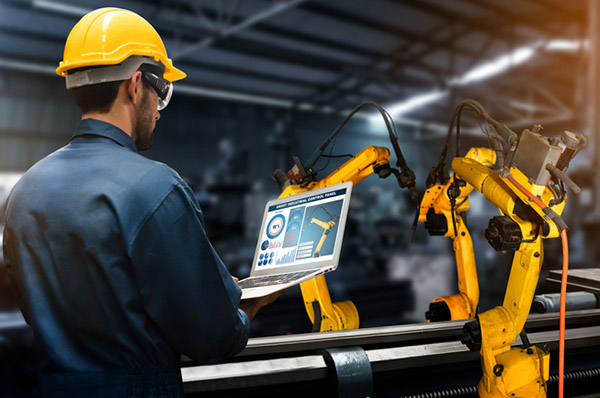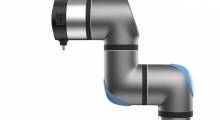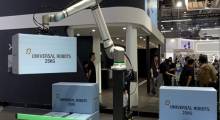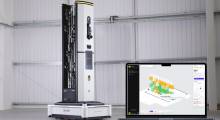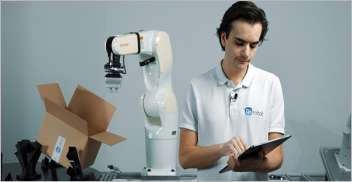Programming industrial robots can be tedious, time-consuming, and expensive. Xaba Inc., which has developed the xCognition controller for CNC machines and robotics using artificial intelligence, today announced a partnership with Rolleri Holding SpA. The companies plan to integrate xCognition with Rolleri Robotic collaborative robots for easier welding operations in manufacturing.
“We developed xCognition to provide a synthetic brain for commercial industrial robots and cobots used in a range of applications, from consumer and PCB assembly to industrial manufacturing for the automotive and aerospace sectors,” said Massimiliano Moruzzi, CEO of Xaba, in a press release.
“Our goal is to make it easier and much more efficient for anyone to adopt robotics for assembly, welding, and drilling by significantly reducing the time required to calibrate, program, and supervise robots,” he added. “This partnership with Rolleri is an important step in enabling us to achieve this goal.”
Xaba addresses robot deployment complexities
Adopting and deploying industrial automation typically requires highly skilled workers who know specialized programming languages, noted Xaba. In addition, the accuracy of robots used today is limited by the lack of machine learning models that accurately represent the physics of a robot’s operation, the company said.
Toronto-based Xaba said its intellectual property uses AI to turn any industrial robot into a “generative robot” by making it intelligent and autonomous. Such robots can both generate their own programming and execute tasks such as welding and additive manufacturing, it claimed.
Xaba said its systems disrupt current business models by making it possible for industrial and collaborative robots to perform tasks without the high costs of program generation and machine tools. xCognition enables any industrial robot to fully control its body and understand its environment using sensor data such as images, sounds, temperatures, and accelerations, asserted the company.
By automating how robots are programmed and adopted, Xaba said it can not only increase accuracy, consistency, and throughput, but also significantly reduce the time and cost of deployments. The company closed seed funding in February.
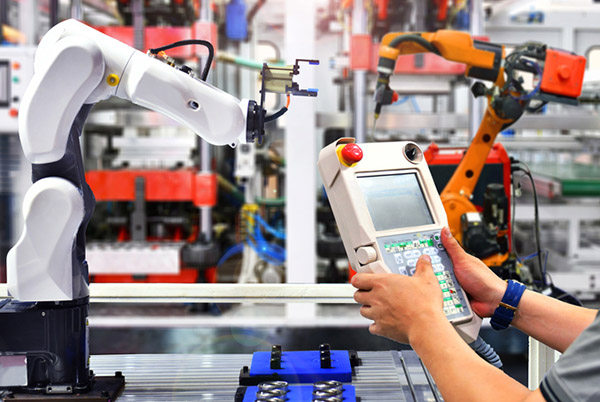
Rolleri conducts ISO 9283 tests
Founded in 1987 as family-owned company, Rolleri Holding said it is a leader in planning, developing, and producing press-brake tools for the original equipment market and after sales. Rolleri, which is in Vigolzone, in the Italian province of Piacenza, said it “has become an important reference point for all those who deal with metal sheet bending.”
In 2020, the company launched Rolleri Robotic with the mission of using cobots to innovate and automate fabrication processes such as welding.
To showcase the benefits of xCognition, Xaba and Rolleri recently completed ISO 9283 tests in Xaba’s robotic laboratory. The International Organization for Standardization (ISO) standard defines the manipulation and performance characteristics of industrial robots and specifies how they should be tested.
In Xaba and Rolleri's tests, a FARO Vantage Laser Tracker System acquired data to train the xCognition machine learning model and to validate trajectory accuracy improvements.
The successful tests showed 10 times performance improvements in absolute positioning and trajectory accuracy, and five times improvements in relative positioning and trajectory accuracy, reported the partners.
“Rolleri's mission is to provide the best solutions to our customers in compliance with three main requirements: quality, safety, and economic advantage,” said Fabio Farina, general manager at Rolleri Robotics. “Artificial intelligence is going to play a key role in significantly reducing the effort and cost of adopting and successfully deploying automation in any shop floor – from small mom-and-pop shops to large corporations.”
“This collaboration with Xaba fits our mission to integrate AI in our robotics products so we can continuously add value to our solutions and deliver significant benefits to our customers,” he said.
As a follow-up to the initial tests, Xaba and Rolleri said they plan to conduct TIG and laser welding tests to further validate welding quality improvements such as improved accuracy and repeatability.
Article topics
Email Sign Up

